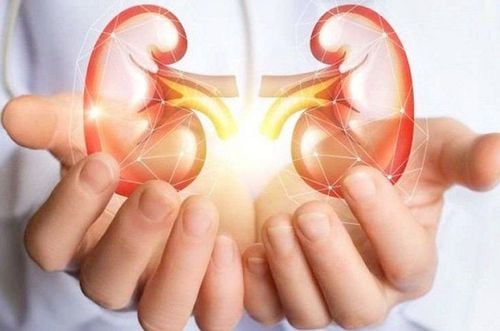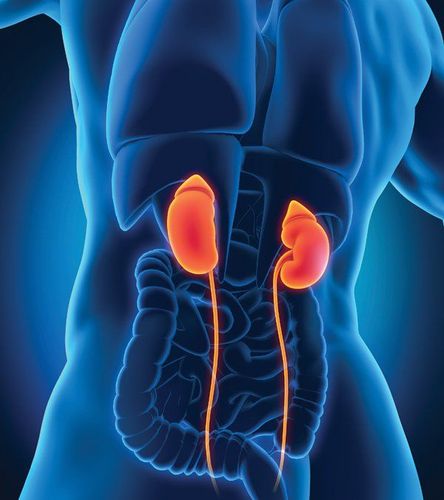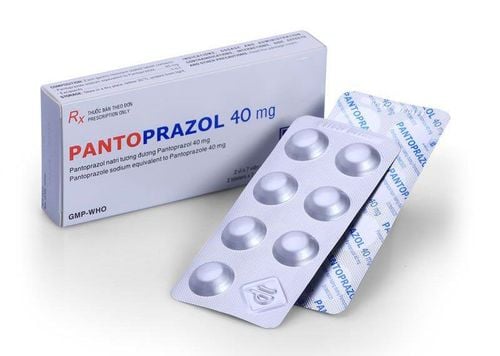This is an automatically translated article.
The article is professionally consulted by Specialist Doctor I Nguyen Hung - Department of Medical Examination & Internal Medicine - Vinmec Danang International General Hospital.
Pregnant women with chronic kidney disease are poorly adapted to the increased blood flow in the kidneys. This can increase the decline in kidney function and result in a poor pregnancy.
1. What is chronic kidney failure?
Chronic kidney failure is a process of declining kidney function. At this time, the kidneys can not remove waste products as well as lose the function of controlling the amount of water in the body, the amount of salt in the blood, the waste products that remain in the body and affect the patient's health.Chronic kidney disease needs to be treated promptly or it will cause serious complications.
2. Stages of chronic kidney disease during pregnancy

Chronic renal failure occurs when glomerular filtration rate falls below 25% of normal and more than 50% of renal function may be lost before serum creatinine rises to 120 μmol/l.
Pregnant women with creatinine values above 124μmol/l are at risk of a rapid decrease in renal function and resulting poor pregnancy. The status of pregnant women with chronic kidney disease must be considered in order to minimize the adverse effects of pregnancy on maternal renal function and effects on the fetus.
Chronic kidney disease is classified into 5 stages. Stages 1 and 2 (normal or mild kidney failure) affect 3% of women of childbearing age (20-29 years). Stages 3 - 5 (glomerular filtration rate less than 60ml) affect 1 in 150 women of childbearing age, but due to reduced fertility and relatively high miscarriage rates, pregnancy in these women is very little.
Some subjects were found to have chronic kidney disease during pregnancy. About 20% of women develop preeclampsia at less than 30 weeks gestation, especially those with severe proteinuria, previously unrecognized as chronic kidney disease.
3. How does pregnancy affect kidney function?
Most pregnant women have mild kidney dysfunction, and pregnancy usually doesn't affect kidney function. The condition of pregnant women will vary from moderate to severe renal failure. According to some studies, women with severe kidney failure before pregnancy are at risk of rapid decline in kidney function during pregnancy. Proteinuria and hypertension both increase this risk.Chronic hypertension puts pregnant women at risk for preeclampsia, which may explain why some women with mild renal dysfunction also experience decreased kidney function during pregnancy. The risk of decreased kidney function is reduced if hypertension is controlled.
Hypertension, proteinuria, and urinary tract infections often coexist in pregnant women with chronic kidney disease, and it is difficult to determine how each of these factors will influence outcome. pregnancy fruit.
Women with chronic kidney failure have difficulty conceiving, the miscarriage rate is high, and the pregnancy outcome is also poor.
4. Chronic kidney failure and pregnancy/childbearing

All women with chronic kidney disease need to be seen early in pregnancy. For some subjects, the treatment of chronic kidney disease during pregnancy is related to the treatment of the clinical features of the disease, requiring frequent monitoring of maternal renal function, blood pressure, infection. and proteinuria.
Ideally, all women with chronic kidney disease need to be aware of the risks to the mother's kidney function and the effects on the fetus during pregnancy. Women with chronic kidney disease often experience amenorrhea, but sometimes can still ovulate and thus be able to conceive. Contraceptive measures should be taken into consideration for the clinical pathology. The treatment for patients with chronic kidney failure depends on the patient's conditions and health. Treating Endocrine diseases such as: Pathology of the pituitary gland - thyroid gland - Diabetes and adrenal gland, including chronic kidney failure.
The specialist works closely with the IVF Center - Obstetrics and Gynecology in the management of patients with endocrine pathologies during pregnancy, thereby having appropriate prevention and treatment plans, protecting the mother's health and little.
Dr. Nguyen Hung graduated as a doctor specializing in General Internal Medicine - University of Medicine and Pharmacy, Ho Chi Minh City; Can speak English and French. With over 36 years of experience in the profession, of which 17 years is the Head of the Department of Endocrinology - Endocrinology, Da Nang Hospital, the doctor has experience in treating endocrine - diabetes and kidney diseases. Currently, he is an endocrinologist at the Department of Medical Examination & Internal Medicine at Vinmec Danang International General Hospital.
Please dial HOTLINE for more information or register for an appointment HERE. Download MyVinmec app to make appointments faster and to manage your bookings easily.














